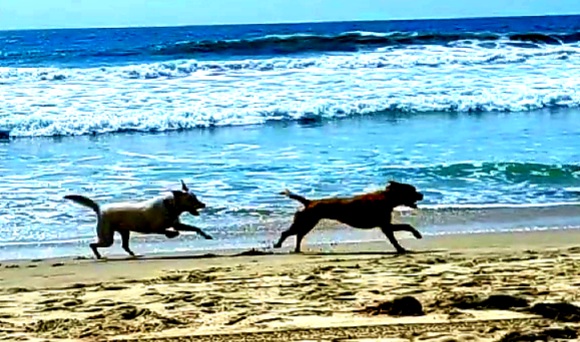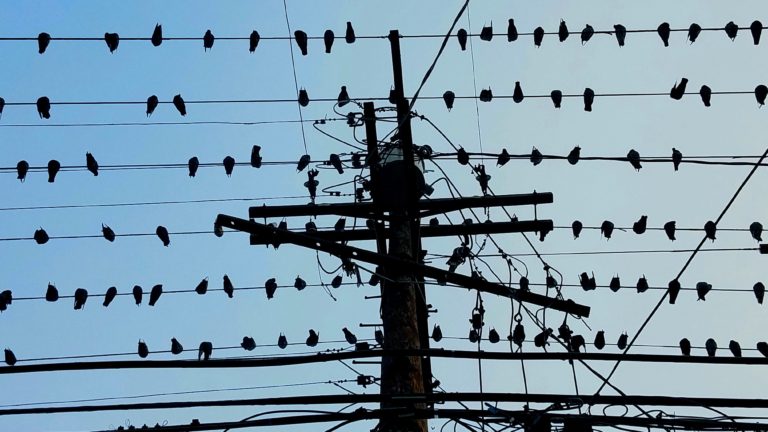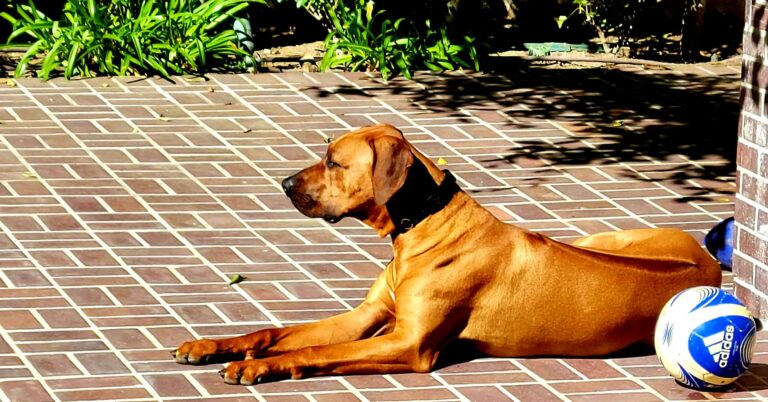Heather Rutherford – Fiction

THREE DOG NIGHT
She brushed a third coat of mascara onto her stiff lashes. Behind her, on the back of the bathroom door, hung her only towel. She squinted at her reflection in the mirror and hoped, Good enough.
The apartment echoed empty as her heeled boots clicked across the polished concrete. Back when flat-weave rugs and leather couches provided warmth, she had loved the cool, steel wool-colored floor. Now cold seeped into the soles of her feet.
She took the elevator down, adjusting the deep V-neck sweater over her chest, and strode out onto the sidewalk. This part of town was once dingy, industrial, but in the past few years new apartment buildings and breweries reimagined the neighborhood as trendy and expensive. Crowds of after-work twenty-somethings strolled to overpriced breweries where they would order something like “Hazed and Confused IPA.” Its description on the chalkboard might read, Hop-forward, citrus heavy. Alright, alright, alright.
Pressing her phone to her ear, she speed-walked and pretended to speak to the imaginary person she wasn’t meeting. “I’m literally on my way.”
She passed Seven Hills Craft Ales, where her former coworkers might gather around long tables, pint glasses filled with black stout, murky yellow, or clear gold. The women would hang their pastel designer handbags on the backs of their chairs. Men with names like Clay or Sandy would roll back the cuffs on their blue button-downs. Though she’d worked with them for six months, she’d never slid through the periphery of their well-employed or family-monied circle. After a misunderstanding about a loan she’d taken, she’d been dismissed.
She turned the corner, passed Big Mackey’s BBQ food truck parked alongside the next warehouse-turned-brewery. A few motorcycles lined up along the side street. Inside, trucker hats and clean, shiny work boots gathered near the stage as that evening’s band warmed up with soundchecks, twanging away on a guitar, a banjo, and a mandolin.
At the bar, she ordered a lager called “If It Ain’t Fixed, Don’t Break It.” Clean and clear as your last drug test. Staring at her phone or checking the door, she feigned expecting someone any minute. She wandered, gazing at the merchandise display along the back wall: logoed T-shirts, pint glasses, and growlers. A man about her age (she smiled to herself; she still passed for under thirty) with shaggy black hair and a black Labrador retriever eased away from the bar, an opaque yellow pint in one hand, his dog’s leash in the other.
She widened her eyes (her second-best feature) and made her way toward him. “Oh, my God! Your dog’s soooo cute! Can I pet him?”
“Sure.”
She knelt as the dog sat, his wide tail thumping the floor. The man wore hiking boots, thick wool socks, and cargo shorts. He seemed like the camping type, starkly different from her silk-shirt, pressed-pants ex, who she’d lived with for two months. The day after she had declared it time for them to get a dog and showed him the SPCA website on his laptop, he’d announced, “This isn’t working. I’m transferring to a job in DC. I’ll cover rent until the lease is up. Which is in six weeks.”
He took all the furniture, including the bed. (To be fair, it was his.) She hadn’t yet admitted her employment situation. If she had, he might have left her more than one towel.
“I love labs. They’re so sweet. What’s his name?” As a child, she’d memorized a dog breed book with a Saint Bernard, barrel attached to his collar, on the book’s cover. She still knew each breed’s characteristics and disposition. The book had disappeared long ago in the many moves she and her sisters made with their mother.
“Robby.” He grinned, bobbed to the music, sipped his beer.
Robby’s leash and collar were covered with the Batman icon. A black bat in the yellow oval, announcing trouble in Gotham. Jesus. But still.
“Robby, you’re so handsome.” She rubbed his neck, and he swiped his rough tongue over her mouth and nose. Laughing, she stood and wiped dog spit from her carefully applied lip stain. “Presumptuous, aren’t you?”
Outdoorsy guy laughed. “Sorry about that. Robby, you’re supposed to ask first. Right?” He waved and lifted his beer to someone behind her, then met her eyes. He was too young.
She chatted with him for another minute so as not to appear rude.
She excused herself to the restroom, noting the crowded table where he sat so she could discreetly avoid him later. Like Robby and his breed, his owner seemed friendly, uncomplicated, and too popular. She spent as long as felt reasonable in the restroom, hoping for new arrivals outside. Once she emerged, the staff—wearing orange logoed T-shirts—were rolling open the garage doors that opened to the lot where a crowd engulfed Big Mackey’s BBQ. She leaned against a metal post, sipping lukewarm lager, and set her eyes on a man with a carefully edged beard flecked with gray. A fawn French bulldog flapped its stubby limbs from a baby carrier strapped to his chest.
He noticed her gaze, and with his free hand (his other gripped a foil-wrapped parcel on a paper plate) he waved one of the Frenchie’s paws at her. She winced, then arranged her smile, her sweater, and sauntered toward them.
“So who’s this?” She bent her knees to be eye level with the panting dog.
“Toasty. She’s friendly but has crippling separation anxiety.” His immaculate dark-wash jeans were belted with shiny brown leather that matched his fashionable shoes.
He worked “in tech,” he said, but so had she. Based on his clothes and shoes, “working in tech” meant something different for him. Why was he here and not a block away with the poke bowl food trucks, rolling up his sleeves with Clay and Sandy?
A woman and two men approached, and the woman looped her arm through his. “Okay, Miles, you’ve got your barbeque. Can we please go?”
Miles winked at her. “This”—he held up the foil-wrapped package—“is my fave sando.”
She rubbed Toasty’s head and hovered on the edge of their conversation until Miles’ friends pressed him to move on.
“Want to come along?” he asked.
The woman—her arm still linked with his—tugged him. A not-subtle-enough headshake from one of the men made it clear how steep a climb she would have to win their acceptance. Despite Miles’ obvious solid income (French bulldogs were a pricey breed) that might cover a well-furnished apartment nearby, his whole vibe was more high-maintenance than his dog’s.
“Thanks for the invite, but I’m meeting someone—”
His friends were drawing him away before she could finish her sentence. He waved good-bye with Toasty’s tiny paw.
The bluegrass singer broke into a song indistinguishable from the warm-up except that he no longer drawled “check, check, check.” Instead, he rambled on about a lonely road in the Shenandoah Valley. Which was where her car sat, in her mother’s side yard, needing repairs she couldn’t afford. She made the payments with her credit card for a car she couldn’t drive. But in order to sell it, she would need to have it fixed.
Then she spotted the tall, rangy man with silver hair in a low ponytail and a bushy, white mustache. Beside him—unleashed—stood a mastiff, whose head rose past the man’s brass-studded belt. The mastiff was comically similar to Toasty in coat color and jowls, but the giant dog had floppy ears, horse-like legs, and at least one hundred and fifty pounds on the Frenchie. The dog wore a sturdy black harness with a patch that read, ASK TO PET. The man paid cash for his stout (Tall, Dark, and Bitter. Molasses. Coffee. No more questions.), and his dog followed him to a high-top table.
Jeans, neither clean nor dirty, frayed at the hems over his worn, heavy-soled, black boots. The kind of boots someone might wear to ride a Harley. He leaned against the wall, set his black stout on a bar mat. The mastiff settled sphinxlike at his owner’s feet, his head the size of a propane tank. She imagined his deep bark, his loyalty and protective nature. She followed them, pointed to the high-top table, and gave a may I join you gesture?
The man flicked his eyes in her direction, nodded once.
She leaned against the wall the way he did, set her glass across the tiny table from his. People passing by gave the mastiff a wide berth. A few stopped to comment.
Beautiful dog.
Wow. He’s like a small horse, isn’t he?
How much does he eat?
The man nodded once to each of them.
She asked, “May I pet him?”
Again, the slight chin drop and lift.
She crouched, held out a soft fist for the dog to sniff. He didn’t, only blinked with bored, dark eyes. She gazed up at the man. White stubble bristled over his Adam’s apple as he swallowed.
He dropped his eyes to her and rumbled, “He won’t come to you.”
Approaching a dog this size went against all she’d learned in the dog breed book. She scooted closer. “What’s his name?”
The man pushed off the wall, empty glass in hand. He eyed her nearly empty lager. “Jack.”
Jack stood and followed the man to the bar. She sucked in a breath, cheeks warm and embarrassed by his sudden departure. Crouching on the floor, asking to pet his dog, attempting conversation with this much older man, she must have looked desperate. She reached for the table’s edge and began to pull herself to standing when his scuffed black boots strode back toward her.
He plunked down two glasses of stout. Jack settled at the man’s feet. Neither looked her way.
“Oh, thank you.” She wrapped both hands around the glass, brought it to her lips and forced back a grimace. “This is good.”
She still hadn’t patted Jack. The man’s hand rested on the table next to his glass. She studied the rough, tanned skin, large blue veins protruding like knuckles. His nails were clean, but a faint darkness shadowed his cuticles.
Maybe he was a mechanic. Maybe he owned a home. Maybe he was divorced or his wife had died and he missed having someone cook for him. She could learn how to roast chicken and potatoes for dinner. Eventually, she would shoulder the new handbag he might buy her for Christmas, grab her travel mug of tea, and, on sunny days, walk to her new job. But in rain, she would drive; he’d keep her car in excellent repair. She would meet her coworkers for after-work drinks, but only when he worked late.
Jack rolled onto his side, facing away from her. She took a tiny sip of stout and coughed. The man, eyes on the bluegrass singer, shook his head. She was losing them. Adjusting the deep V of her sweater, she leaned over the table. “So—”
“Already got a daughter.”
He grabbed his glass, pushed away from the wall, and took long-legged steps to the far side of the bar. Jack ambled along behind; his ASK TO PET patch glowed in the dim light.



